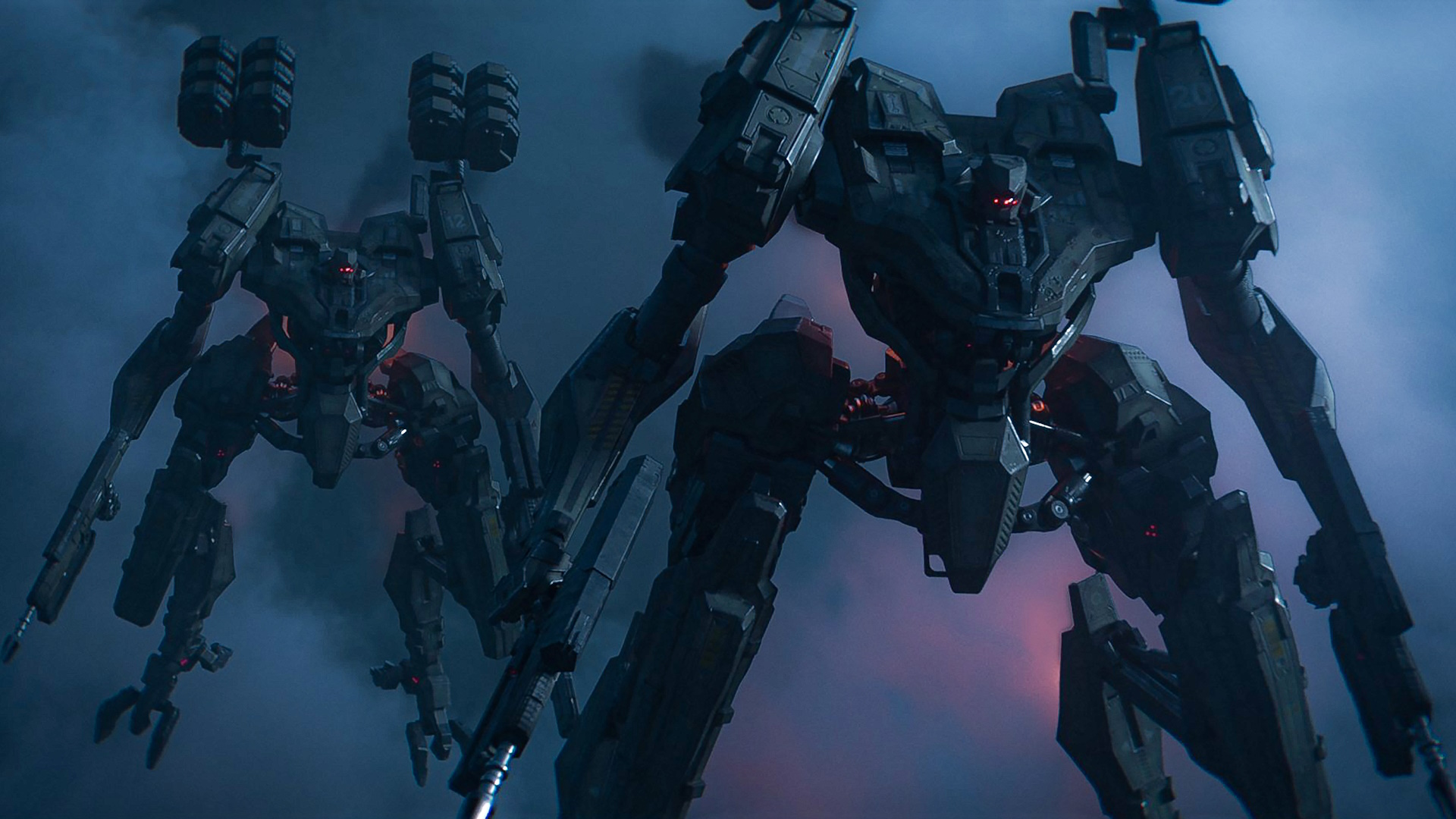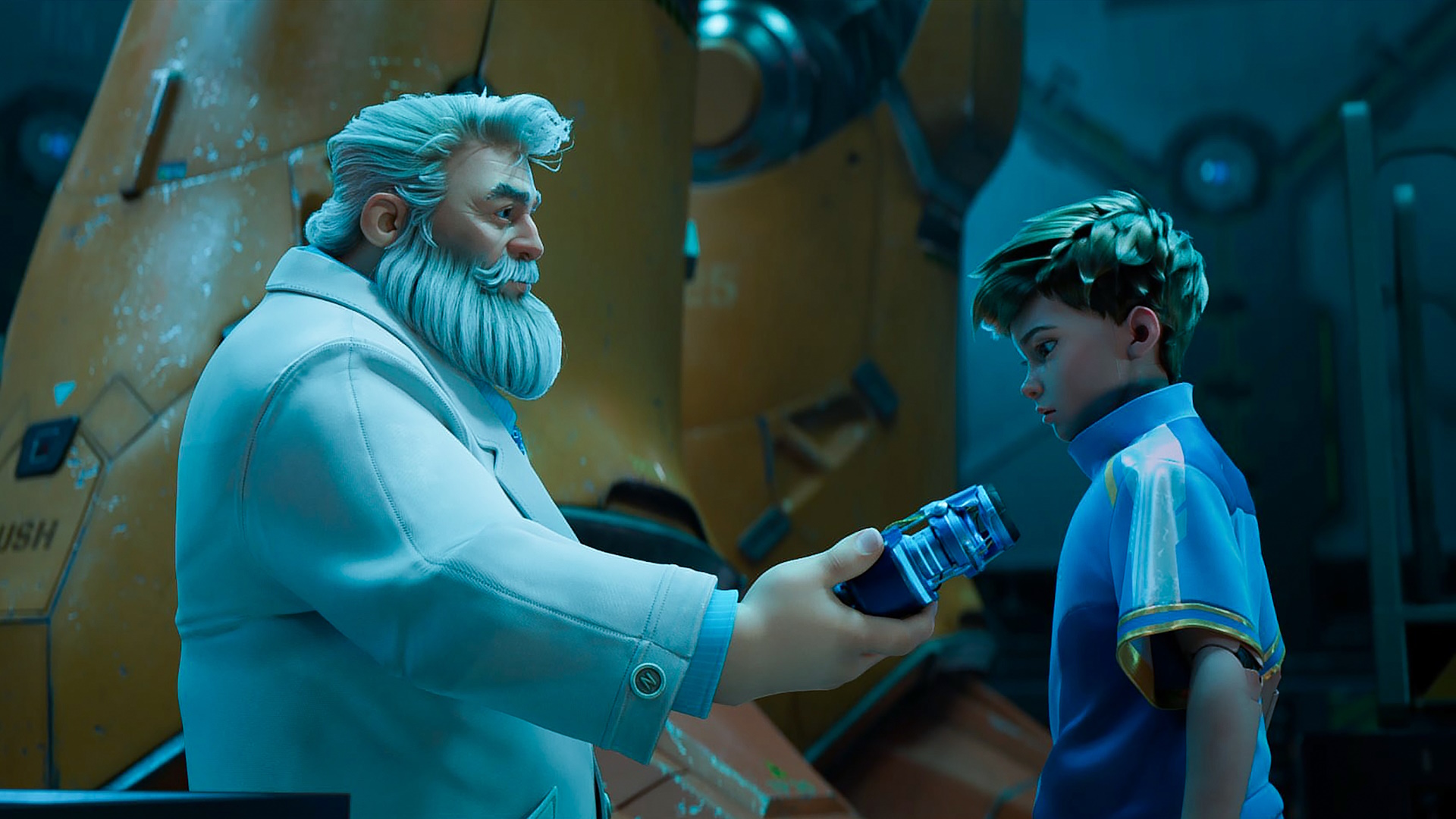GamesRadar+ Verdict
Secret Level, considered as a package, struggles to shake the troubles inherent to both anthology series and video game adaptations by their very nature. But the highs are high, even if the lows are low, and a few standout entries make for a fascinating, if not particularly good as whole, experiment.
Pros
- +
Some surprising, unexpected standout adaptations
- +
Largely beautiful animation throughout
- +
A clear love for games
Cons
- -
Uneven mix of adaptations
- -
Too many safe, brand-appropriate stories
- -
Awkward roster of source material
Why you can trust GamesRadar+
On paper, the new adult-animated anthology series Secret Level sounds great. Created by Deadpool director and Netflix's Love, Death & Robots creator Tim Miller, the new series from Amazon MGM Studios and Blur Studio (the visual effects company co-founded by Miller) applies a similar format to the Netflix animated anthology to popular games like Mega Man, Unreal Tournament, and Dungeons & Dragons. The reality, virtual, digital, or otherwise, is… complicated.
Secret Level ultimately suffers from the same problem that so frequently troubles all other anthology series regardless of whether they're animated and regardless of whether they're game adaptations. There are some truly stellar episodes, some real clunkers, and a fair amount of middling ones. Taken as a whole, it makes for an uneven experience with serious highlights that ultimately make up for the misses more often than not.
Advancing the plot

Release date: December 10 and December 17 (a batch of episodes on each date)
Available on: Amazon's Prime Video
Created by: Tim Miller
Episodes seen: 15/15
Many shows have the benefit of building up narrative arcs over time, revealing certain truths about characters or situations by letting the audience linger with them through multiple episodes and scenarios. An anthology doesn't get the same luxury, and Secret Level attempts to introduce, begin, and conclude a story set in entirely different universes during each and every episode. Sometimes, as a treat, the show gets around 15 minutes to accomplish all of this – sometimes it's more like eight.
A good, well-paced TV episode can absolutely fit into those parameters, and animation specifically has frequently been able to turn 11-minute episodes into something special, but it's no easy task. Being succinct, compelling, and clear all while juggling the requirements of trying to introduce well-established settings to potentially unfamiliar viewers – I do not envy any of the creators involved; it sounds impossible.
And yet, somehow, the team does actually achieve the impossible in more episodes than I might have initially expected. The Armored Core episode, 'Asset Management,' is a well-executed entry from the jump, and not just because the voice and likeness of Keanu Reeves happens to grace the visage and vocal chords of the main character. The mech combat, movement, and general tone all really work together for a cohesive whole, and while I won't spoil the ending here, it's easily the conclusion that impressed me the most.
Adapt or die

The most successful entries actually do seem to have one thing in common if nothing else: a distinct lack of intention to skew particularly close to whatever they're adapting. The Pac-Man episode is absolutely wild, and as the teasers that have released ahead of the actual series indicate, the team really went in a completely unexpected direction that nevertheless has a number of the classic game's hallmarks. It's not a one-to-one adaptation, and neither does it play it safe, and it stands out in large part because of it.
But for every Armored Core or Pac-Man episode, there is an episode that falls into the aforementioned pitfalls. A major trap of adapting video games into any other medium is becoming enamored with the idea of somehow fictionalizing the mechanics into whatever story you're telling. It's far too easy to delve too greedily, too deep, and end up at a place that's more clever than interesting. (I'm looking at you, Spelunky episode.)
I do not envy any of the creators involved; it sounds impossible
I won't speculate as to how, exactly, the various stakeholders influenced the creation of the episodes, but it's not hard to imagine that they, well, did. It would certainly go a long way toward explaining why a few of the adaptations feel more toothless than others. Certain episodes show a real desire to lean in and get weird and wild while others are more content to be a brand-specific TV version of the poorly received 2015 film Pixels.
One particularly frustrating episode feels like a series of cameo nods and reference winks that seem designed around the core mission statement of something like, "Isn't this cool? Don't you love this? How fun!" This is all juxtaposed against what I would personally consider to be a fictional hypercapitalist hellscape filled with exactly the kind of technology I dread coming into popularity in real life. I won't go so far as to say this wasn't intentional – the people making this thing absolutely put a lot of thought into it and stared at all its moving parts far longer than I – but the end result is puzzling to say the least.
Graphics modes

An area where Secret Level doesn't slouch at all is its animation. Barring a couple of wonky-looking faces here and there, I've no major complaints that aren't superficial at worst. Considered all together, it might have been nice for the various animation studios involved to push the envelope a bit more than they do. Outside of a few outliers, nearly all of the episodes skew closer towards some level of photorealism than not. It got to the point where the final result felt so similar across episodes that I was carefully scrubbing through the credits just to make sure Blur Studio, which has previously pulled double duty to produce and animate certain Love, Death & Robots episodes, hadn't done all of them. (The couple I checked had animation by Unit Image and Illusorium, so there's certainly some variety.)
Perhaps this is just me having been spoiled by other animated anthologies. Star Wars: Visions on Disney Plus, just to name one example, has individual episodes that are handled by different studios across its various volumes that look, feel, and even move differently. There are similarities, and the source material each episode is riffing on is drawn from the same well, but they are distinct in a way that Secret Level never really achieves. It can be hard to shake the feeling during any part of Secret Level, even the best parts, that you're not just watching a very impressive CG cutscene compilation.
Whether Secret Level works for an individual viewer is likely to largely be determined by preconceptions, honestly. You don't technically need to know anything about any of the games that it adapts, but it won't hurt. In fact, in some cases, it'll probably add a good amount of depth and nuance to have some idea of the franchises – like, say, Unreal Tournament. If the whole thing is a marketing endeavor designed to engage new folks, it's hard to imagine Secret Level changing hearts and minds even if it did make me briefly think positively about the MMO New World. Taken as a package, it's hard to recommend, though I will happily rewatch certain episodes over and over again. A success, albeit not a great one.
Secret Level releases a batch of episodes on December 10 and then again on December 17, and is available on Amazon's Prime Video.
For more, check out our guide to the best shows on Amazon Prime Video to stream right now.

Rollin is the US Managing Editor at GamesRadar+. With over 16 years of online journalism experience, Rollin has helped provide coverage of gaming and entertainment for brands like IGN, Inverse, ComicBook.com, and more. While he has approximate knowledge of many things, his work often has a focus on RPGs and animation in addition to franchises like Pokemon and Dragon Age. In his spare time, Rollin likes to import Valkyria Chronicles merch and watch anime.



